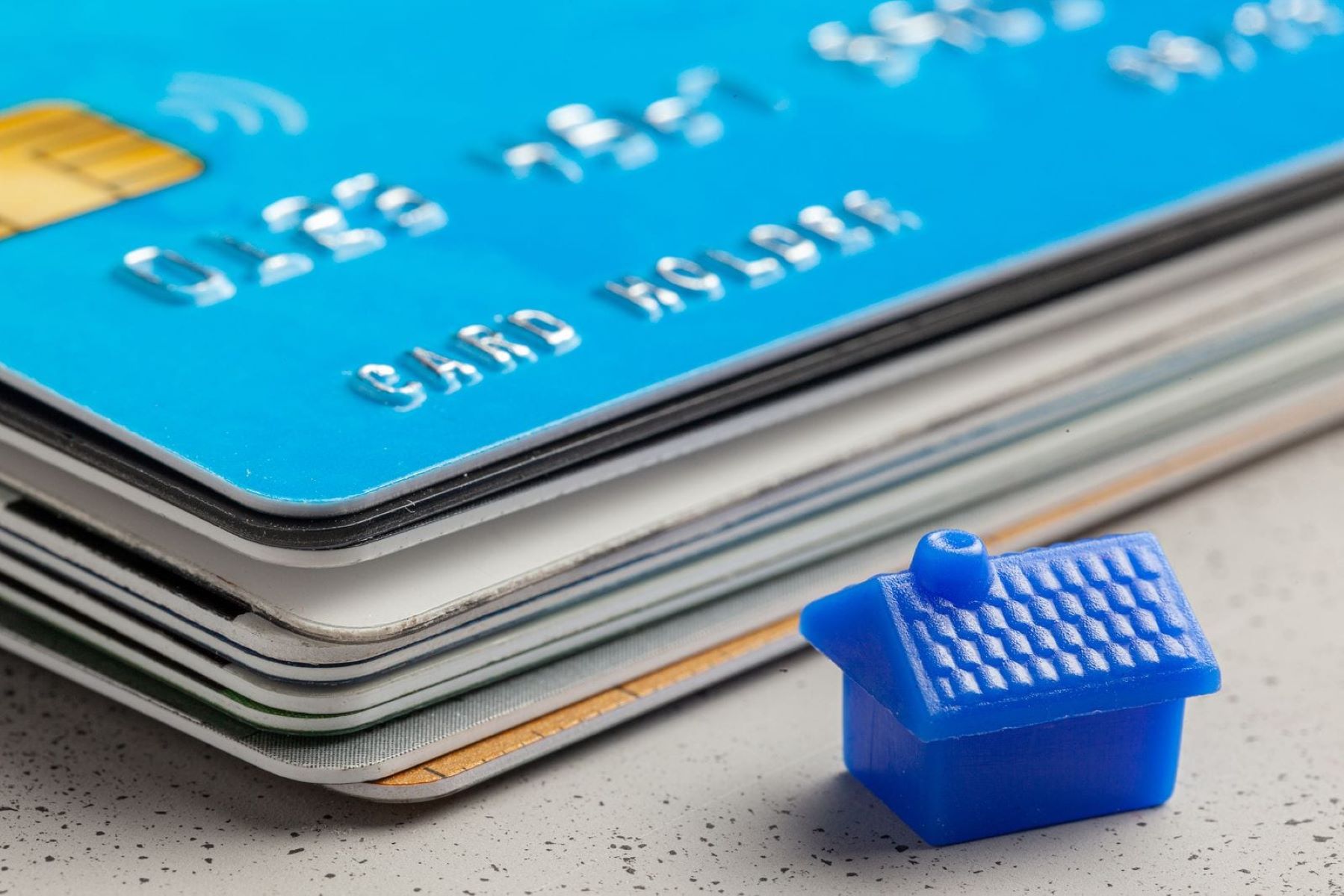

Finance
How Can I Fix My Credit To Buy A House
Modified: March 6, 2024
Looking to buy a house but worried about your credit? Learn effective strategies to fix your credit for better financing options in the future.
(Many of the links in this article redirect to a specific reviewed product. Your purchase of these products through affiliate links helps to generate commission for LiveWell, at no extra cost. Learn more)
Table of Contents
- Introduction
- Understanding your credit score
- Assessing your current credit situation
- Checking for errors on your credit report
- Disputing inaccuracies on your credit report
- Paying off outstanding debts
- Establishing a positive payment history
- Avoiding new credit inquiries
- Utilizing credit utilization ratio effectively
- Building a diverse credit mix
- Being patient and persistent with credit repair
- Conclusion
Introduction
Buying a house is a significant milestone in many people’s lives, representing stability, security, and a place to call home. However, when it comes to obtaining a mortgage loan to finance your dream home, your credit score plays a crucial role. Lenders use your credit score as a measure of your creditworthiness and ability to repay the loan.
Unfortunately, many individuals face challenges in securing a mortgage due to a less-than-ideal credit score. If you find yourself in this situation, don’t worry – you’re not alone. The good news is that there are steps you can take to improve your credit and increase your chances of qualifying for a home loan.
In this article, we will explore various strategies and tips to help you fix your credit and improve your chances of buying a house. From understanding your credit score to addressing errors on your credit report and establishing a positive payment history, we will cover it all. So, let’s dive in and discover how you can pave the way to homeownership.
Understanding your credit score
Before embarking on your journey to fix your credit, it’s essential to have a clear understanding of what a credit score is and how it affects your ability to buy a house. Your credit score is a numeric representation of your creditworthiness, determined by your credit history and financial behavior.
In the United States, the most common credit scoring model is the FICO score, which ranges from 300 to 850. The higher your credit score, the more favorable terms and interest rates you’re likely to secure when applying for a mortgage.
Several factors contribute to your credit score, including:
- Payment history: This is the most significant factor, accounting for about 35% of your score. It reflects whether you’ve paid your bills on time and if you have any late or missed payments.
- Credit utilization: This refers to the amount of available credit you’re using. Aim to keep your credit utilization below 30% to demonstrate responsible borrowing.
- Length of credit history: The longer you’ve had credit accounts, the better. It shows lenders that you have a track record of managing credit responsibly.
- Credit mix: Having a diverse range of credit types, such as credit cards, loans, and a mortgage, can positively impact your credit score.
- New credit inquiries: Opening multiple credit accounts within a short period can raise red flags for lenders, potentially negatively affecting your credit score.
By familiarizing yourself with these factors, you can prioritize areas for improvement and take the necessary steps to enhance your creditworthiness. Remember, improving your credit score takes time and effort, but it is a worthwhile endeavor that can unlock opportunities for homeownership.
Assessing your current credit situation
Before you can start the process of fixing your credit to buy a house, it’s important to take stock of your current credit situation. This involves gathering information about your credit accounts, outstanding debts, and any negative marks on your credit report.
Start by obtaining a copy of your credit report from each of the three major credit bureaus – Equifax, Experian, and TransUnion. You are entitled to one free copy of your credit report from each bureau per year, which you can request through annualcreditreport.com.
Review your credit reports carefully, paying close attention to any errors, inaccuracies, or signs of identity theft. Look for late payments, collection accounts, bankruptcies, or any other negative information that may be impacting your credit score. If you come across any discrepancies, make a note of them as these will need to be addressed in the following steps.
In addition to assessing your credit reports, compile a list of all your outstanding debts, including credit card balances, student loans, auto loans, and any other debts you owe. Note the amounts owed, interest rates, and minimum monthly payments for each debt. This information will help you create a plan to pay off your debts and improve your creditworthiness.
By understanding your current credit situation, you can identify areas that need improvement and develop a roadmap for credit repair. Remember, fixing your credit is a gradual process, but by taking the first step of assessing your current credit situation, you are setting yourself on the path to homeownership.
Checking for errors on your credit report
One of the critical steps in fixing your credit to buy a house is checking for errors on your credit report. Even the smallest errors can have a significant impact on your credit score, potentially jeopardizing your chances of securing a mortgage loan with favorable terms.
When reviewing your credit report, keep an eye out for the following types of errors:
- Inaccurate personal information: Check that your name, address, and other personal details are correct. Discrepancies in this information may indicate the presence of identity theft or incorrect reporting.
- Accounts that don’t belong to you: Look for any accounts listed on your credit report that you don’t recognize. This could be a sign of fraudulent activity or mistaken reporting.
- Duplicate accounts: Sometimes, creditors may accidentally report the same account multiple times, leading to inflated debt or an inaccurate credit utilization ratio.
- Incorrect payment history: Make sure that your reported payment history accurately reflects your actual payments. Late payments that you’ve made on time or payments that have been incorrectly reported as late can negatively impact your credit score.
- Closed accounts still reported as open: If you’ve closed an account, verify that it’s being reported as closed on your credit report. Open accounts that are no longer active can affect your credit utilization ratio and overall creditworthiness.
If you identify any errors or inaccuracies on your credit report, you have the right to dispute them. Contact the credit bureaus in writing, providing detailed explanations and supporting documents, if available. The credit bureaus are required by law to investigate and correct any errors within a reasonable amount of time.
By diligently checking for errors on your credit report and taking steps to correct them, you can ensure that your creditworthiness is accurately represented to lenders, increasing your chances of qualifying for a mortgage to buy a house.
Disputing inaccuracies on your credit report
If you’ve discovered errors or inaccuracies on your credit report while checking for errors, it’s crucial to take action and dispute these inaccuracies. By disputing these errors, you can have them corrected or removed from your credit report, ultimately improving your credit score and increasing your chances of buying a house.
Here’s a step-by-step guide on how to dispute inaccuracies on your credit report:
- Identify the errors: Note down the specific errors or inaccuracies you have found on your credit report. Be as detailed as possible, describing the incorrect information and why it is inaccurate.
- Gather supporting documents: Collect any supporting documents that can prove the inaccuracies. This may include bank statements, payment receipts, letters from creditors, or any other relevant documentation.
- Write a formal dispute letter: Craft a formal dispute letter to the credit bureau(s) reporting the inaccuracies. In your letter, clearly explain the errors you have identified and provide any supporting documents as evidence.
- Send your dispute letter: Send your dispute letter via certified mail with a return receipt request. This will ensure that you have proof of delivery and that the credit bureau received your dispute.
- Follow up with the credit bureau: Allow the credit bureau up to 30 days to investigate and respond to your dispute. If you don’t receive a response within this time frame, follow up with the credit bureau and request an update on the status of your dispute.
- Review the results: Once the credit bureau has completed its investigation, carefully review the results. If the inaccuracies have been corrected or removed from your credit report, you’re one step closer to improving your credit score.
It’s important to note that the process of disputing inaccuracies can take time and patience. However, it’s a necessary step in fixing your credit and ensuring the accuracy of your credit report.
By taking proactive measures to dispute errors on your credit report, you’re working towards a more accurate representation of your credit history, increasing your chances of obtaining a mortgage loan to buy a house.
Paying off outstanding debts
One of the most effective ways to fix your credit and improve your chances of buying a house is to pay off outstanding debts. High levels of debt can negatively impact your credit score, making it difficult to qualify for a mortgage loan with favorable terms. By tackling your debts head-on, you can demonstrate responsible financial behavior and show lenders that you’re committed to improving your creditworthiness.
Here are some steps to help you pay off outstanding debts:
- Create a budget: Start by evaluating your income and expenses. Create a budget that allows you to allocate a portion of your income towards debt repayment.
- Prioritize your debts: Identify which debts have the highest interest rates or the smallest balances. Consider implementing the debt snowball method, where you pay off the smallest debt first and then use the amount you were paying towards that debt to tackle the next smallest debt.
- Negotiate with creditors: Reach out to your creditors and negotiate more favorable terms, such as reduced interest rates or extended payment plans. Clear communication can lead to mutually beneficial agreements.
- Consider debt consolidation: If you have multiple debts with high interest rates, consolidating them into a single loan with a lower interest rate can simplify payments and save you money in the long run.
- Make consistent payments: Set up automatic payments or reminders to ensure that you make your debt payments on time every month. Consistency is key to establishing a positive payment history.
- Avoid incurring new debt: While paying off your debts, it’s important to avoid taking on new debt. Minimize your credit card usage and resist the temptation to open new credit accounts.
By diligently paying off your outstanding debts, you can reduce your overall debt burden and improve your credit utilization ratio. This will significantly improve your creditworthiness, increasing your chances of obtaining a mortgage loan to buy a house.
Establishing a positive payment history
One of the key factors that lenders consider when evaluating your creditworthiness is your payment history. Demonstrating a consistent track record of making your payments on time can significantly improve your credit score and increase your chances of buying a house. Here’s how you can establish a positive payment history:
- Pay your bills on time: Make it a priority to pay all your bills, including credit card payments, loan installments, and utility bills, by their due dates. Late or missed payments can have a negative impact on your credit score.
- Set up automatic payments: Consider setting up automatic payments for your bills to ensure that they are paid on time. This can help you avoid accidental late payments and ensure a consistent payment history.
- Monitor your due dates: Keep track of when your bills are due and set reminders or utilize calendar notifications to ensure that you make your payments promptly. Staying organized will help you maintain a positive payment history.
- Pay more than the minimum payment: If possible, strive to pay more than the minimum required payment on your credit cards or loans. Making larger payments can expedite the repayment process and demonstrate responsible financial behavior.
- Avoid overextending yourself: Be cautious about taking on excessive debt or utilizing your credit up to the maximum limit. Keep your credit utilization ratio below 30% to show lenders that you can manage credit responsibly.
- Stay consistent: Consistency is key when it comes to establishing a positive payment history. Aim to make your payments in full and on time every month over an extended period. This consistent behavior demonstrates your ability to manage your finances effectively.
Remember, establishing a positive payment history takes time and commitment. However, by consistently making your payments on time and managing your debts responsibly, you can significantly improve your credit score and increase your chances of buying a house.
Avoiding new credit inquiries
When you’re in the process of fixing your credit to buy a house, it’s important to avoid new credit inquiries whenever possible. Each time you apply for new credit or a loan, a hard inquiry is placed on your credit report, which can temporarily lower your credit score. To maintain and improve your creditworthiness, it’s crucial to minimize the number of new credit inquiries. Here’s how:
- Be selective with new credit applications: Before applying for new credit, carefully consider whether it’s necessary. Take into account your current financial situation and whether additional credit will help or hinder your credit repair efforts.
- Research and compare lenders: If you need to apply for a mortgage or other loans, research and compare different lenders to find the best terms and interest rates. Limit your applications to the ones that you are most likely to proceed with.
- Submit multiple applications within a short period: If you need to shop around for the best loan terms, try to submit applications within a short time frame, such as two weeks. Credit scoring models typically treat multiple inquiries for the same type of loan as a single inquiry.
- Maintain a positive payment history: Focus on making timely payments on your existing credit accounts. By demonstrating responsible credit management, lenders may view you as a less risky borrower, reducing the impact of new credit inquiries.
- Monitor your credit report: Keep an eye on your credit report to ensure that there are no unauthorized or unnecessary credit inquiries. If you spot any unauthorized inquiries, immediately report them to the respective credit bureau and investigate further.
- Consider alternative credit-building methods: Instead of seeking new credit, explore alternative ways to build your credit, such as becoming an authorized user on someone else’s credit card, or using secured credit cards that require a deposit as collateral.
By avoiding unnecessary credit inquiries and being strategic when seeking new credit, you can minimize the impact on your credit score and maintain a positive trajectory in your credit repair journey. Remember, every inquiry counts, so prioritize quality over quantity when it comes to new credit applications.
Utilizing credit utilization ratio effectively
The credit utilization ratio is an essential factor in your overall credit score. It measures the amount of credit you’re currently using compared to your available credit. Effectively managing your credit utilization ratio can have a significant impact on your creditworthiness when buying a house. Here’s how you can utilize your credit utilization ratio effectively:
- Keep your credit utilization below 30%: Aim to keep your credit utilization ratio below 30% of your available credit limit. Lenders see high credit utilization as an indication of financial strain and may view it negatively when evaluating your mortgage application.
- Pay down credit card balances: Focus on reducing credit card balances to improve your credit utilization ratio. Start by paying off credit cards with the highest utilization or highest interest rates first.
- Request credit limit increases: Another way to lower your credit utilization ratio is by requesting credit limit increases on your existing credit cards. This can increase your available credit, reducing the percentage of credit you’re using.
- Avoid closing credit accounts: Even if you’ve paid off a credit card or loan, consider keeping the account open. Closing credit accounts reduces your available credit, which can lead to a higher credit utilization ratio.
- Monitor your credit limits: Ensure that the credit limits reported on your credit report are accurate. Sometimes, lenders may not update credit limits, leading to an inflated credit utilization ratio. Contact the credit bureau to correct any inaccuracies.
- Pay attention to individual card utilization: In addition to your overall credit utilization ratio, pay attention to the utilization of individual credit cards. Keeping the utilization of each card below 30% will further enhance your creditworthiness.
By effectively managing your credit utilization ratio, you show lenders that you can responsibly manage your credit. This positively impacts your credit score and increases the likelihood of being approved for a mortgage loan to buy a house.
Building a diverse credit mix
When it comes to improving your credit and increasing your chances of buying a house, having a diverse credit mix can play a crucial role. Lenders like to see that you have experience managing different types of credit, as it demonstrates your ability to handle various financial responsibilities. Here’s how you can build a diverse credit mix:
- Open new credit accounts strategically: Consider adding different types of credit accounts to your credit portfolio, such as credit cards, personal loans, auto loans, or a mortgage. However, be mindful of the impact of new credit inquiries and ensure you can manage the additional financial obligations responsibly.
- Become an authorized user: If you have a trusted family member or friend with a long and positive credit history, ask them to add you as an authorized user on their credit card. This can help you establish a positive credit history and diversify your credit mix.
- Use a secured credit card: If you have limited credit history or are trying to rebuild your credit, a secured credit card can be a useful tool. With a secured credit card, you provide a security deposit that becomes your credit limit, allowing you to demonstrate responsible credit use.
- Responsibly manage your student loans: If you have student loans, ensuring you make consistent, on-time payments can positively impact your credit profile. This demonstrates your ability to handle long-term debt responsibly.
- Monitor and manage your credit accounts: Regularly review and manage your credit accounts to ensure they are in good standing. Make timely payments, keep balances low, and avoid late payments or defaults.
- Be patient and avoid rushing: Building a diverse credit mix takes time, so be patient and avoid rushing into opening multiple credit accounts at once. Focus on building a strong foundation of responsible credit use.
By demonstrating your ability to manage different types of credit responsibly, you strengthen your creditworthiness and increase your chances of being approved for a mortgage loan to buy a house. Keep in mind that building a diverse credit mix is a long-term strategy, and it’s important to consistently manage your credit accounts to maintain a positive credit profile.
Being patient and persistent with credit repair
When it comes to fixing your credit to buy a house, it’s essential to approach the process with patience and persistence. Credit repair is not an overnight process, and it requires dedication and consistent effort to see significant improvements. Here are some key points to keep in mind:
- Understand the time it takes: Credit repair is not an instant solution, and it may take several months or even years to achieve significant improvements in your credit score. Recognize that it is a journey that requires long-term commitment.
- Stick to your plan: Once you’ve developed a plan to fix your credit, stick to it. Make your payments on time, pay off debts, and consistently practice good financial habits. Avoid the temptation to deviate from your plan, as consistency is key to achieving your credit goals.
- Be realistic in your expectations: It’s important to set realistic expectations about the timeline for improving your credit. While it can be frustrating to see slow progress, know that every positive step you take counts and will eventually lead to the desired outcome.
- Monitor your progress: Regularly monitor your credit reports to track your progress and ensure that the changes you’ve made are being reflected accurately. Look for improvements in your credit score, reduced debt, and the removal of any errors or inaccuracies.
- Seek professional guidance if needed: If you’re feeling overwhelmed or unsure about the credit repair process, consider seeking professional guidance from a reputable credit counseling agency or a financial advisor specializing in credit repair. They can provide valuable insights and assist you in navigating the complexities of credit repair.
- Stay motivated: Rebuilding your credit may come with challenges and setbacks along the way. Stay motivated by keeping your long-term goal of buying a house in mind. Remind yourself of the benefits of improved credit, such as better loan terms and increased financial stability.
Remember, credit repair is a marathon, not a sprint. By being patient, persistent, and maintaining good financial habits, you can gradually improve your creditworthiness and position yourself for a successful home-buying experience.
Conclusion
Fixing your credit to buy a house is an important journey that requires time, effort, and perseverance. By understanding your credit score, assessing your current credit situation, and checking for errors on your credit report, you can lay the foundation for credit repair. Disputing inaccuracies, paying off outstanding debts, and establishing a positive payment history are vital steps in improving your creditworthiness.
Avoiding new credit inquiries, utilizing your credit utilization ratio effectively, and building a diverse credit mix are additional strategies that can maximize your chances of obtaining a mortgage loan. Throughout this process, it’s crucial to be patient, persisting despite obstacles, and staying motivated by keeping your goal of buying a house in mind.
Remember, credit repair takes time, and results may not be immediate. However, with consistent effort and a positive mindset, you can slowly but surely improve your credit score and increase your chances of achieving homeownership.
As you embark on your credit repair journey, remember to be proactive, monitor your progress regularly, and seek professional guidance when necessary. By taking control of your credit and making proactive changes, you can pave the way for a brighter financial future and turn your dream of owning a house into a reality.














